Shama – Madhavrao Deshpande
In this film, Dr Vinny Chitluri pays tribute to Shama and talks of his special relationship with Baba. Sai Baba had told Shama that their association went back 72 generations, and to no other devotee had Baba said such a thing. Shama had a friendly bond with Baba and took certain liberties with Him, which Baba did not mind, but sadly Shama did not realize that Baba was a Divine Incarnation until after Baba took Mahasamadhi:
Madhavrao Deshpande dearly called Shama by Baba was one of Baba’s most intimate devotees. He can be likened to Arjuna to Lord Krishna or Nandi to Shiva.
Shama was born to a Brahmin family in December 1880 in Nimgaon. Shama was the eldest son in the family and he had two younger brothers – Kashinath Balwant and Bappajee Balwant. His parents relocated to Shirdi when Shama was two and stayed there thenceforth. His mother was the sister of Laxman Mama Kulkarni (another intimate devotee of Baba).
Shama studied in Shirdi and later became an assistant teacher in a junior school which was located in the room near Baba’s masjid (Dwarakamai). Baba called Madhavrao either ‘Shama’ or ‘Shamyaa’ in a tone of love and affection. The word ‘Shyam’ in Sanskrit means black, but in a flawless and pleasing tone. There was a small window in the classroom through which Shama used to watch and observe Baba He soon realised Baba’s remarkable powers and knew Baba was no ordinary Fakir.
Shama used to address Baba as ‘Deva’ and he often took liberties with Him. The other devotees did not have the courage to ask Baba to come and sit for lunch. But, Shama, after the noon aarti would ask Baba to ‘get up and go to his seat’ and make kaala (a mixture) of the prasad. Baba, without uttering a word, would get up at once and sit near the Nimbar.
Stories from the Shri Sai Satcharita:
One of the most important stories in the Sai Satcharita (chapters 18 and 19) is the acceptance of Hemadpant by Baba and here, Shama had an important role to play. Hemadpant was sent to Shama’s house for a chitchat when Shama related the beautiful story of Radhabai Deshmukh. Another story in the Sai Satcharita is about Bala Saheb Mirikar and his escaping a snake bite as he took Shama along with him to Chitale on Baba’s suggestion (chapter 22).
Shama was a very intimate devotee of Baba and Baba wanted to favour him in a particular way by giving him a copy of the Vishnu-Sahasra-Nam (a book giving a thousand names in praise of Lord Vishnu and held second in importance to Bhagwad Gita) as Prasad. This was done in the following manner. Once, a Ramadasi (follower of Saint Ramadas), came to Shirdi and stayed there for a while. His daily routine was: waking up early in the morning, having a bath and after wearing saffron-coloured clothes and besmearing himself with sacred ashes, he would read the Vishnu-Sahasra-Nam and Adhyatma-Ramayana with faith. The Ramadasi has read these books often and Baba thought of favouring and initiating Shama with the Vishnu-Sahasra-Nam. He therefore, called the Ramadasi to Him and said that He was suffering from intense stomach pain and unless He took Senna-pods (sona-mukhi, a mild purgative drug) the pain would not stop; so he should please go to the bazaar and bring the drug. The Ramadasi closed his reading and went to the bazaar. Then Baba descended from His seat, came to the Ramadasi’s place of reading, took out the copy of Vishnu-Sahasra-Nam, and coming to His seat said to Shama, “oh Shama, this book is very valuable and efficacious, so I present it to you, you read it. Once I suffered intensely and My heart began to palpitate and My life was in danger. At that critical time, I hugged this book to My heart and then, Shama, what a relief it gave me! I thought that Allah Himself came down and saved Me. So I give this to you, read it slowly, little by little, read daily one name at least and it will do you good.” Shama replied that he did not want it, and that the owner of it, the Ramadasi who was a mad, obstinate and irritable fellow would certainly pick up a quarrel with him, besides, being a rustic himself, he could not read distinctly the Sanskrit (Devanagari) letters of the book.
Shama thought that Baba wanted to set him up against the Ramadasi by this act of His, but he had no idea of what Baba felt for him. Baba must have thought to tie this necklace of Vishu-Sahasra-Nam round the neck of Shama, as he was an intimate devotee, though a rustic, and thus save him from the miseries of the worldly existence. The efficacy of God’s Name is well-known. It saves us from all sins and bad tendencies, frees us from the cycle of births and deaths. There is no easier sadhana than this. It is the best purifier of our mind. It requires no paraphernalia and no restrictions. It is so easy and so effective. This sadhana, Baba wanted Shama to practise, though he did not crave for it. So Baba forced this on him. It is also reported that long ago, Eknath Maharaj, similarly, forced this Vishnu-Sahasra-Nam on a poor Brahmin neighbour, and thus saved him. The reading and study of this Vishnu-Sahasra-Nam is a broad open way of purifying the mind, and hence Baba thrust this on His Shama.
Soon, the Ramadasi returned with the senna-pods. Anna Chinchanikar, who was then present and who wanted to play the part of Narada (the Celestial Rishi who was well known for setting up quarrels between Gods and demons and vice versa), informed him of what had happened. The Ramadasi at once flared up. He came down at once on Shama with all fury. He said that it was Shama who set Baba to send him away under the pretext of stomachache for bringing the medicine and thus got the book. He began to scold and abuse Shama and remarked that if the book was not returned, he would dash his head before him. Shama calmly remonstrated with him, but in vain. Then Baba spoke kindly to him as follows, “oh Ramadasi, what is the matter with you? Why are you so turbulent? Is not Shama our boy? Why do you scold him unnecessarily? How is it that you are so quarrelsome? Can you not speak soft and sweet words? You read daily these sacred books and still your mind is impure and your passions uncontrolled. What sort of a Ramadasi you are! You ought to be indifferent to all things. Is it not strange that you should covet this book so strongly? A true Ramadasi should have no ‘mamata’ (attachment) but have ‘samata’ (equality) towards all. You are now quarrelling with the boy Shama for a mere book. Go, take your seat, books can be had in plenty for money, but not men; think well and be considerate. What is the worth of your book? Shama had no concern with it. I took it up Myself and gave it to him. You know it by heart. I thought Shama might read it and profit thereby, and so I gave it to him.”
How sweet were these words of Baba, soft, tender and nectar-like! Their effect was wonderful. The Ramadasi calmed down and said to Shama that he would take Panchratni’ Geeta in return. Shama was much pleased and said – “Why one, I shall give ten copies in return!” So the matter was ultimately settled. The question for consideration is “why should the Ramadasi press for Pancharatni Geeta, the God whom he never cared to know, and why should he, who daily read religious books in the Masjid in front of Baba, quarrel with Shama before Him?” We do not know how to apportion the blame and whom to blame. We only say that, had this procedure been not gone through, the importance of the subject, the efficacy of God’s name and the study of Vishnu- Sahasra-Nam would not have been brought home to Shama. So we see that Baba’s method of teaching and initiating was unique. In this case Shama did gradually study the book and mastered its contents to such an extent that he was able to explain it to Professor G.G. Narke, M.A. of the College of Engineering, Poona, the son-in-law of Shriman Booty and a devotee of Baba (paraphrased from the Shri Sai Satcharitra Chapter 27).
Once, a devotee named Mrs. Aurangabadkar, requested Shama to help her open her heart out to Baba for a cure for infertility. Shama waited for the right opportunity and one day when Baba was in a cheerful mood, He pinched Shama’s cheek. Shama pretended to be offended. Baba then said, “in all the seventy-two generations that we have been together, have I ever touched you? Just try and remember,” thus indicating that their Rinanubandh spanned for a period of seventy generations (Shri Sai Satchatira Chapter 36). Baba, eventually did bless Mrs. Aurangabadkar and she was blessed with a son.
Baba cures Shama on several occasions – one such incident:
Once, Shama was suffering from an eye infection. His eyes were red, swollen and watered profusely. He tried various ointments and pills. But the infection went from bad to worse. The swelling increased and the pain became quite unbearable. At last he went to Baba and confronted Him. Baba asked him if all was well. This upset him very much and hence he said angrily, ‘Deva I haven’t seen such a callous and unconcerned God like you. You cure the whole of humanity. For the last four days I am in agony. My eyes are swollen, watering continuously and the pain is unbearable. Because of the throbbing I am crying, shouting and dying of pain, but you are oblivious to this. Aren’t you ashamed of Yourself? Are you blind? Are you deaf too? What use is such a God? If by tomorrow my eyes are not cured, I will drive you out of the Dwarakamai or my name is not Shama’. To this Baba said in Marathi language ‘Ugach, vat vat karu nakos Shamyaa, saath meeryanch daane ugaal aani de doolyath ghalun mange bhag thuje doole vingaavani hothil’ (meaning Shyama, don’t grumble for nothing. Take seven black pepper seeds and boil them in some water and put this in your eyes. And your eyes will become crystal clear. Here take this Udi and go). These words of Baba further infuriated Shama. Hence he told Baba, ‘Deva do you think you are very smart? Where on earth did you learn this Vaidgiri? I will put the pepper in my eyes and my eyes will burst. How great is your prescription? It’s a prescription only to burst people’s eyes’. To which Baba calmly said, ‘Don’t act smart Shamyaa. Go and do what I said, and if your eyes don’t become clear then you can get angry’. Although Shama shouted at Baba he had utmost faith in Baba and His words. Shama did as directed by Baba and at that very moment Shama’s eyes became crystal clear.
Shama visits Trilok:
Once Shama asked Baba whether there really was a ‘Trilok’. He asked Baba if there was a Brahma Lok, Vishnu Lok and Shiv Lok. To this Baba replied in the affirmative. Shama immediately said, “Arre Deva why don’t you show it to me?”. Shama insisted on seeing Trilok. Then Baba asked him to close his eyes and then open them. And lo! Shama could see Brahma Lok. He saw the most beautiful, ornate diamond studded throne on which Lord Brahma was sitting. He was holding court with his minstrels. They too were sitting on beautiful, golden chairs studded with gems. There was so much gold and gems that it was indescribable. Baba said, “Shama this is Satya Lok, and this is Brahma Dev”. Baba then asked him to open and close his eyes again and He showed him Vaikunth Lok. Lastly He showed him Shiv Lok. Each time Shama saw one of the Loks, Baba explained to him what he was seeing and who the presiding deity was. Shama was overwhelmed by what he saw. He was slightly frightened and at the same time joyful to see the abundance of wealth and opulence. Again Baba emphasised, “Shama all this is not for us, our goal is quite unusual”. Shama could see all this because Baba gave him Divya Drishti (Cosmic Vision).
Shama’s spiritual journey and other lessons:
Baba distributed vast amounts of money on a daily basis to many devotees. But, He did not give any money to Shama. Instead, Baba gave him spiritual gifts that were invaluable. Baba often gave him religious books, Pothis and Shama read and reread them with great zeal. The other spiritual gift that Baba gave Shama was to send him on pilgrimages. Shama travelled across the length and breadth of India and visited many Holy places like Kashi, Char Dham and Jagannath Puri.
Everyday Baba received many letters and Shama would read them aloud to Baba. And, according to Baba’s orders, would reply to them. If any devotee sent money Shama used to go to the post office, collect the money and hand it over to Baba. Once a devotee had sent a money order of two rupees. Shama went and collected the money from post office. But while returning from the post office, he changed his mind and came and hid the money atop the Rath room inside Dwarakamai. The omnipresent Baba knew this but did not utter a word to Shama. But after few days, disaster struck. One night there was a theft in Shama’s house and the thief robbed him of two hundred fifty rupees. Shama searched for the money everywhere and later reported the matter to the police, but to no avail. Then in desperation he went to Baba and said, “Baba there was a theft in my house and the thief stole two hundred and fifty rupees. Do you feel good about this? That a poor man like me lost so much money. Arre Deva who can I tell my tale of woe to, but you?”. To this Baba calmly said, “Arre Shamyaa what is the matter? Because there was a theft, and you lost money, you came to Me with your complaint. But when My two rupees were stolen to whom should I complain?”. Shama immediately understood the meaning of Baba’s words. Baba further said to Shama “the value of two hundred and fifty rupees for a poor man like you, has the same value of two rupees to a Fakir like Me.”
Shama did not perform any ritualistics pooja to Baba like many other devotees. But, he had intense faith in Baba. This faith is impossible to describe. Shama had utter, one pointed, concentrated and selfless devotion towards Baba. Shama used to perform Sai Nama Japa with every breath that he took. This has been mentioned very clearly in Khaparde’s diary. The entry for 8th December 1911 states as follows: “Madhavarao Deshpande was here and fell asleep. I saw with my own eyes and heard with my own ears what I only read about but never experienced. With every outgoing and indrawing breath, comes the clear sound of ‘Sainath Maharaj, Sainath Baba’. This sound is still clearer when Madhavrao snores as the words can be heard at a distance. This is really wonderful”.
Shama’s passing away and his house:
Shama was quite a healthy villager and lived upto 80 years. On 15th April 1944, Wednesday at about twelve noon Shama lost consciousness. And on the next day i.e. Thursday, 16th April 1944 at night Shama breathed his last and became one with his Sadguru.
Shama’s house is situated towards the right bylane while going from Dwarakamai to the Bazaar. After Shama, this house was looked after by his son Udhav Rao Deshpande who breathed his last on 27th June 1998. Udhav Rao stated that he was a young lad before Baba’s Mahasamadhi and often he would play with Baba. Baba loved children a lot, and he spent many evenings playing with Baba. Once Shama asked Baba, “what would happen to this child?”. It is stated that Baba said, “he will grow up in the Masjid and that there will be no dearth of funds for his livelihood”. Now the widow of Udhav Rao Smt.Kusuma looks after this ancestral house.
This house is very sacred as Baba gave him various books to keep and read. There is a statue of Ganapati towards the right hand corner in the main room and it is said that this Ganapati was given by Baba. There are some original photographs of Baba (going to Lendi Bagh and Baba sitting with Shama to his left and Mahalsapati to his right).
Life lessons to be learned from Shama:
-
Baba’s words are THE truth. There is nothing beyond that. Just trust Him.
Dr. Vinny emphasises how this task changed Hemadpant as a person. Vinny Ma also gives us details about the original Satcharita written in poem form in Marathi, and how translated and editions versions have not been able to do justice to Baba’s words that He uttered. She hopes one day, someone will accurately translate Baba’s words from Marathi to other languages and bring out the essence of what He spoke.

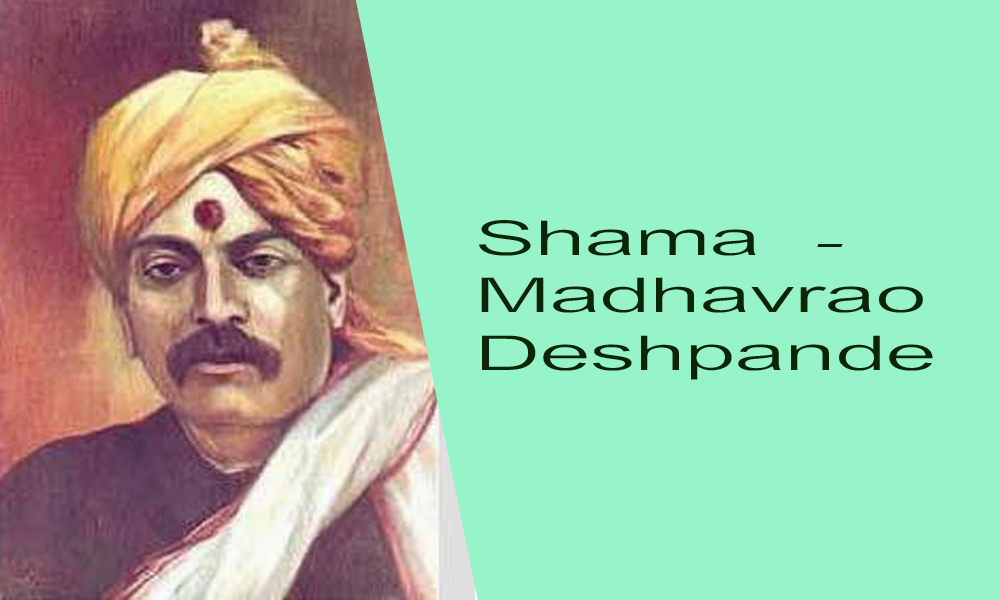
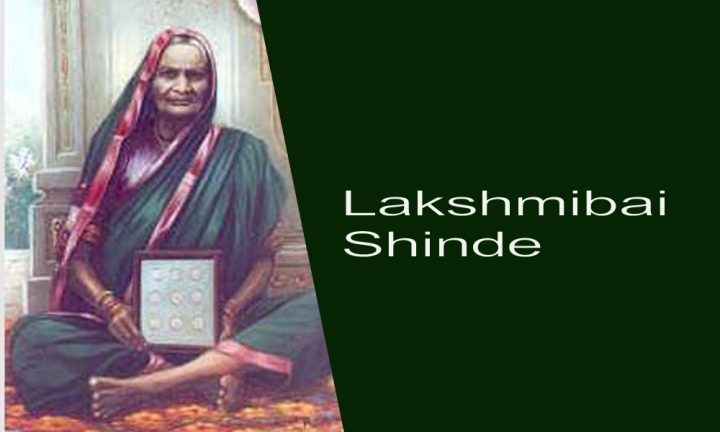
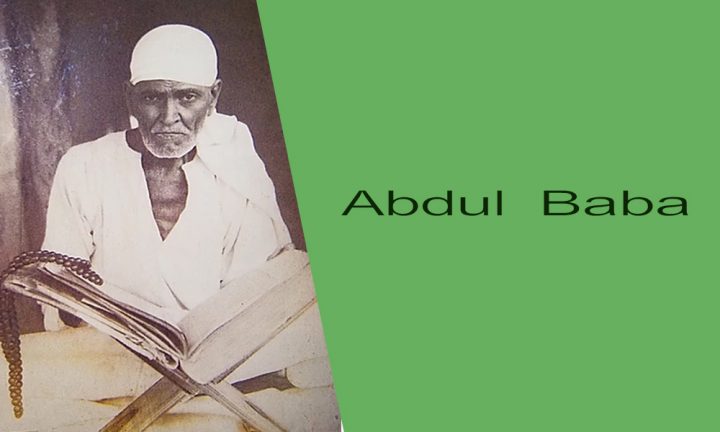
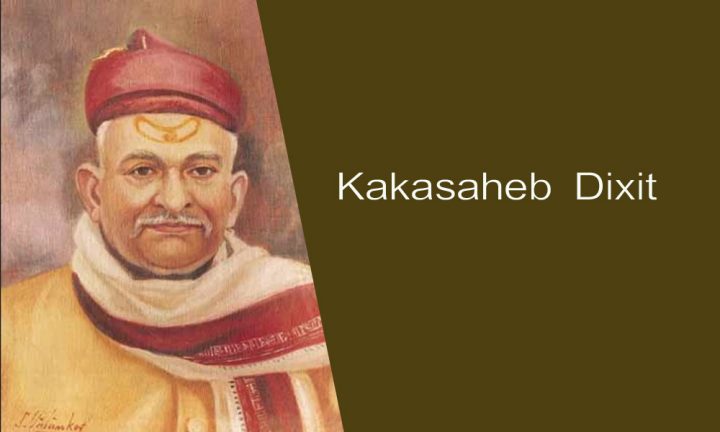
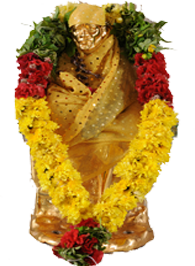
 Donate Now
Donate Now  Online Services
Online Services

Find us on Social Media